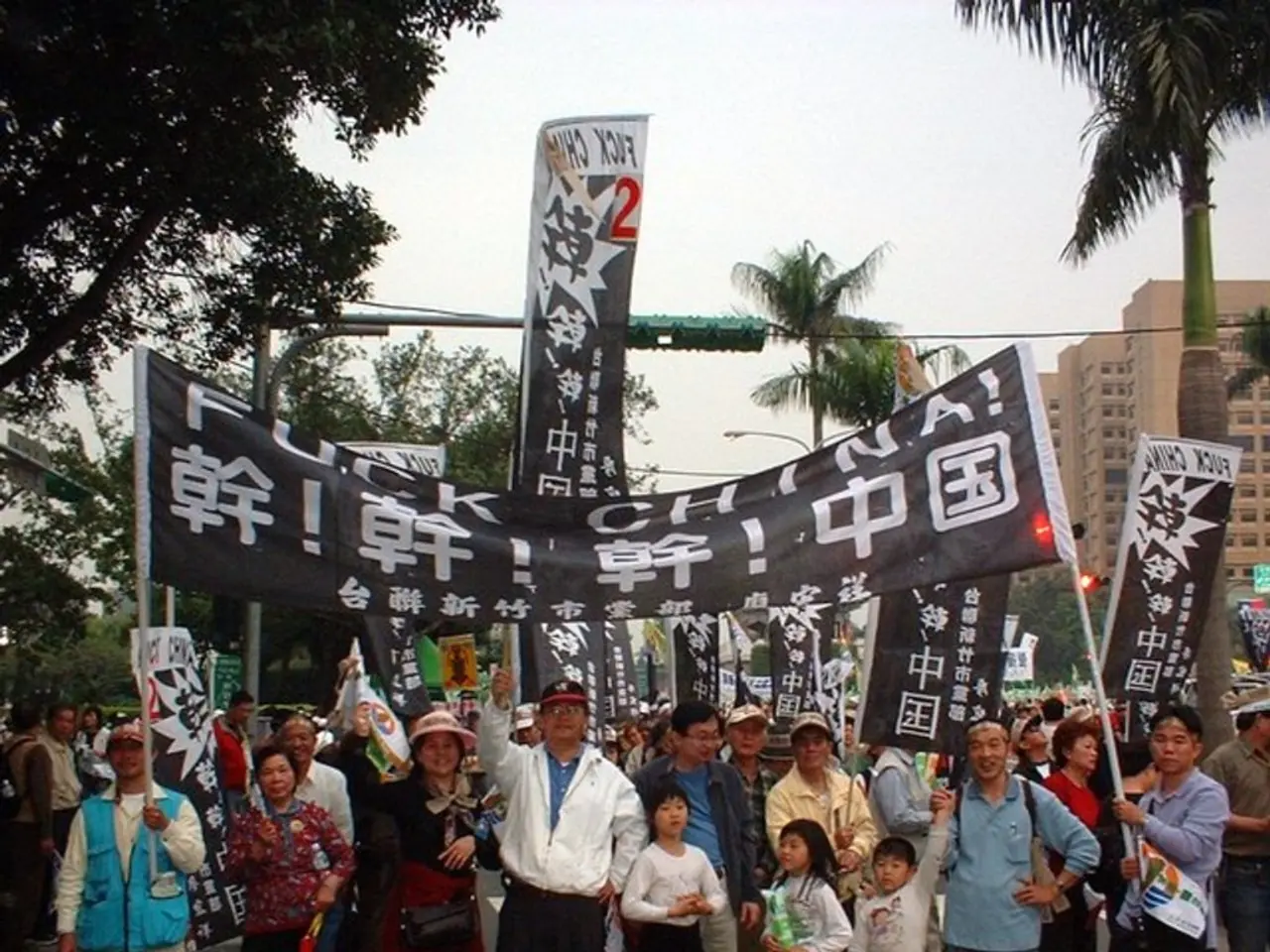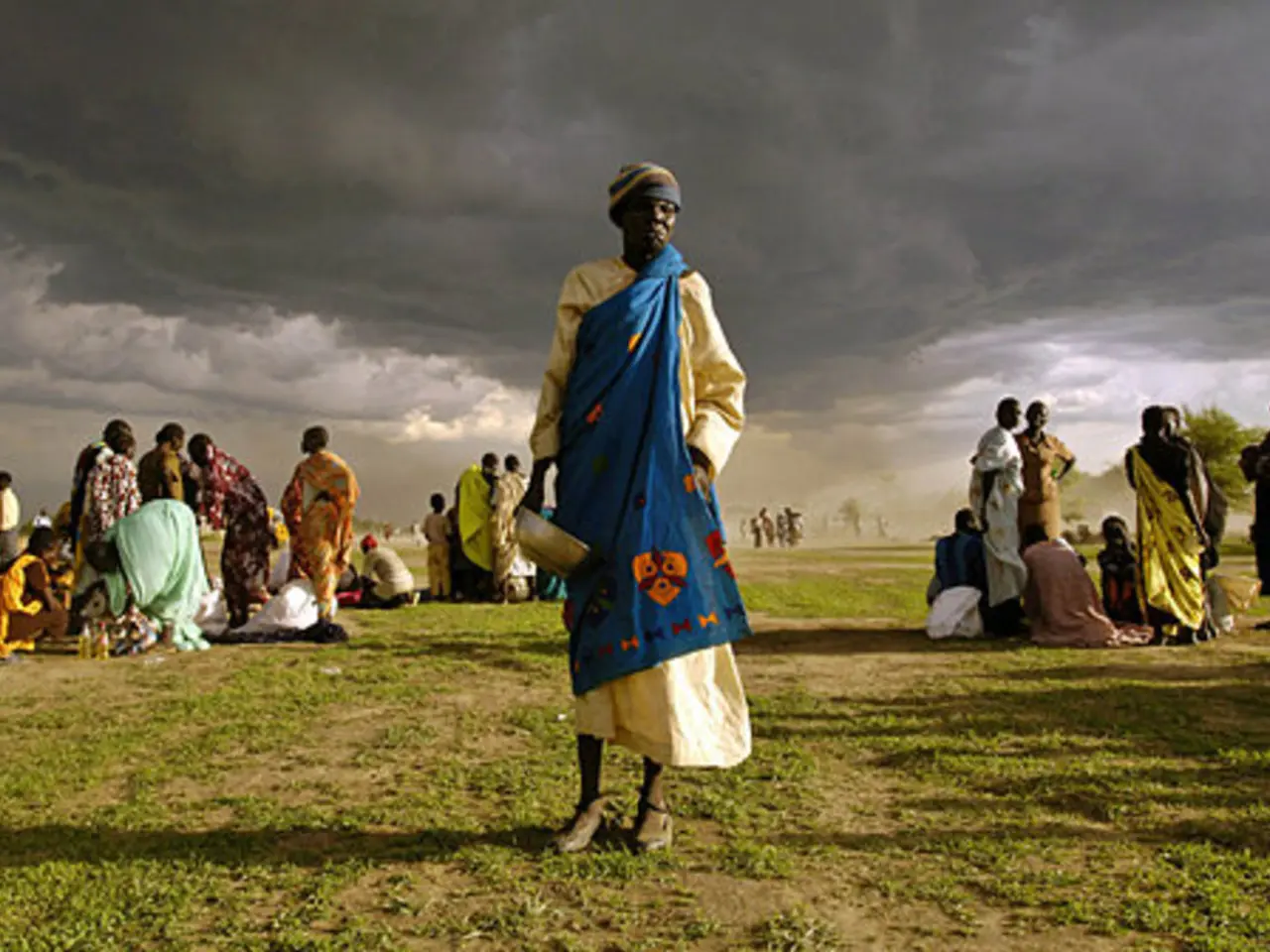Struggling Existence in Transit: Daily Struggles of Migrants in Tunis
Struggling Migrants in Tunisia: A Precarious Journey Towards Europe
Life for many African migrants in Tunisia is a challenging one, marked by precarious living conditions, limited work opportunities, and ongoing struggles to migrate to Europe.
In the western part of Tunis, Ahmed Barry, a 24-year-old migrant from Guinea, works at a car wash. His colleague, Ali Moriba, another Guinean migrant, shares a two-room apartment with five other West African migrants. The car wash's equipment is old, and business is slow. Ahmed and Ali are told by their boss to continue washing cars only after he repairs the defective water gun.
Tens of thousands of migrants from countries south of the Sahara view Tunisia as a hub, hoping to start a new, better life in Europe. However, the journey is far from easy. Many migrants do not stay at their jobs for long in Tunisia, either leaving or getting caught.
Life has become harder for migrants in Tunisia since the country signed an agreement with the European Union two years ago to curb migration flows. The coast guard has increased its patrols and is monitoring the waters more closely, with the help of European equipment and harsher penalties for smugglers. As a result, the influx to Italy from Tunisia decreased by nearly 80 percent compared to the previous year, according to official Italian figures.
Around 3,500 irregular migrants have returned to their home countries voluntarily this year alone, as of May. The IOM organizes free flights twice a week in cooperation with Tunisian authorities and donor countries. However, 70% of sub-Saharan migrants in Tunisia aim to continue their journey towards Europe, refusing to return home despite difficult circumstances.
Many migrants live in extreme precariousness, often without stable shelter. The largest makeshift camp near the offices of the UN Refugee Agency (UNHCR) and the International Organization for Migration (IOM) in Tunis was dismantled and dissolved, serving as a sleeping and gathering place for thousands of unregistered migrants. More camps were dissolved in the Sfax region this year.
Tensions and hostility have increased since 2023 following President Kais Saied’s harsh rhetoric against sub-Saharan migrants, framing them as security threats and fueling racist violence and social exclusion. This hostile environment has also led to crackdowns and prosecution of migrant defenders, contributing to migrants’ distrust of both NGOs and UN agencies.
Economic hardship is severe both for migrants and locals, with an unemployment rate of about 16% in Tunisia and significant poverty. Migrants struggle to find stable work and frequently turn to informal jobs such as plastic collecting or car washing under difficult competition and discrimination. Some local business centers outright exclude migrants from access to work support, while a few remain open to them, reflecting a mixed reception.
The migrant population is diverse, including many with higher education (26% university educated), women (27%), and numerous unregistered children (estimated 2,500 to 3,000 minors), which complicates access to social services and legal protection.
In summary, African migrants in Tunisia endure fragile living conditions amid growing social tensions and limited economic prospects while harboring strong aspirations to reach Europe via increasingly dangerous routes. The situation is aggravated by restrictive national policies, hostile public sentiment, and distrust of aid organizations, creating a volatile and uncertain environment for this population.
In the midst of ongoing tensions and growing hostility towards Sub-Saharan migrants, politics in Tunisia have significantly impacted the migration scenario. Many migrants, despite facing challenges in securing stable jobs and living conditions, continue to view Tunisia as a stepping stone towards their aspired general-news goal of migrating to Europe. Meanwhile, crimes related to migration, such as smuggling, have resulted in stringent measures by the Tunisian coast guard, leading to a decrease in the number of migrants reaching Europe and an increase in returning migrants, a part of the crime-and-justice phenomenon.







